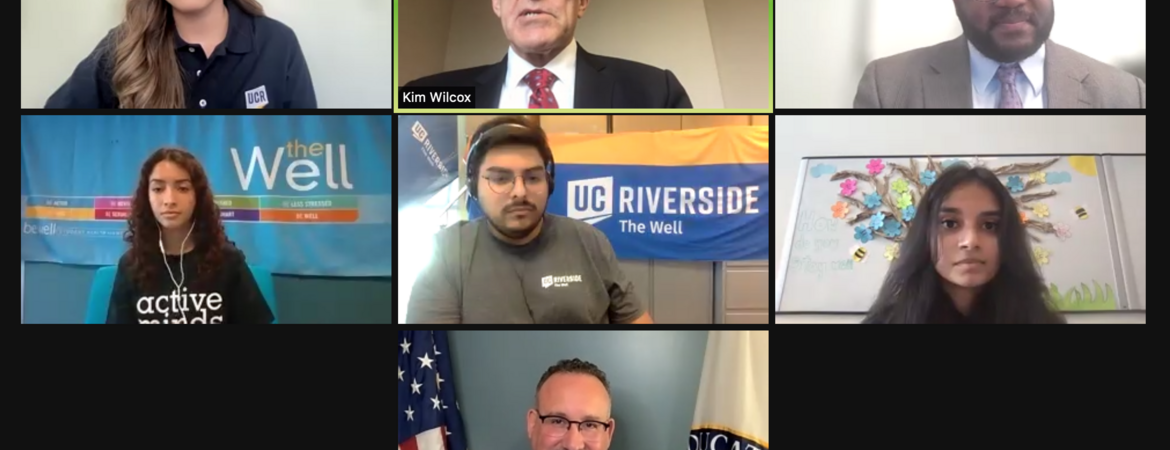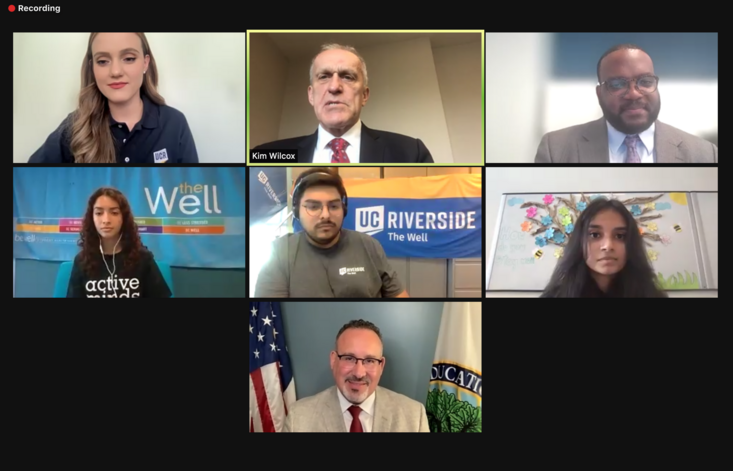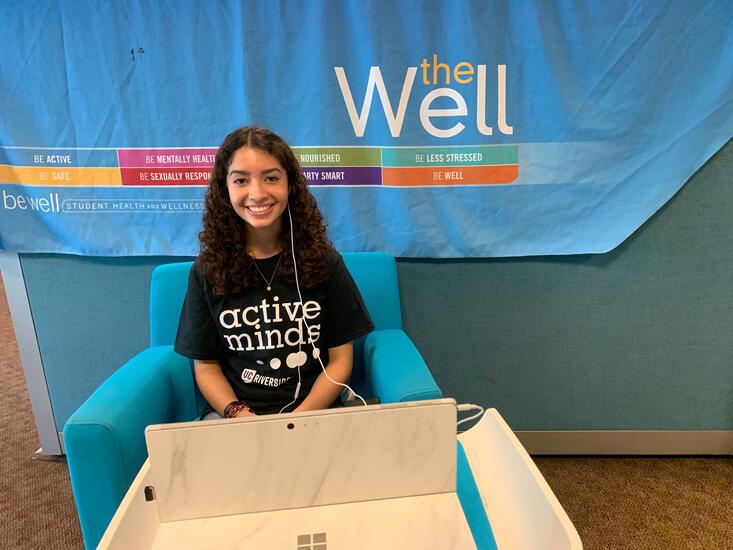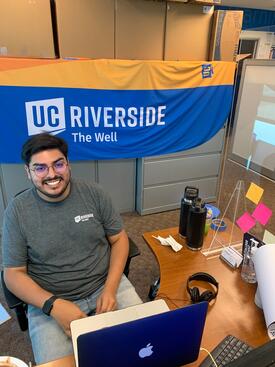U.S. Secretary of Education Miguel Cardona held a roundtable discussion on mental health support with four UC Riverside students Thursday, May 19, lauding the campus as an example of how to support student needs.
During the hour-long Zoom chat, Cardona asked the students about UCR programs supporting student mental health well-being during the pandemic and what the federal government can do to build on the campus’ success.
The meeting was held the same day the Department of Education published new guidance on helping colleges and universities support students, faculty, and staff members as they navigate mental health challenges exacerbated by the pandemic. It includes examples of how to use Higher Education Emergency Relief Funds, or HEERF, to invest in programs, provide care, and connect with providers.
UCR used federal pandemic relief funds to provide immediate crisis support and teletherapy to students and expanded wellness resources for staff. The university can be a model for other colleges and universities, Cardona said during the meeting.
“If we can do what you’re doing at UC Riverside, I know our students, our campuses, will be on the path, not only to academic recovery, but to mental health recovery, and be stronger than ever,” he said.
Chancellor Kim A. Wilcox, who joined the meeting, said UCR’s commitment goes beyond providing a quality education to include student well-being.
“At UCR, we’re committed to a holistic experience for our students,” he said.
The focus of much of the meeting was on the four students, who are all active in advocating for mental health support. Three of the students are peer educators with The Well, UCR’s student well-being and health promotion department that provides health education, training, resources, and programming for students.
Thursday’s roundtable was held the same day The Well hosted a Public Health Fair on the Hinderaker lawn. The fair included COVID-19 information and services, games, food, and other activities.
Yuritza Escalante, 21, a fourth-year psychology major, is The Well’s student director of outreach and internal relations for the Active Minds program and part of the national Active Minds students advisory committee.
Escalante said Active Minds peer educators host ongoing groups discussions that have been helpful for students to talk to each other about difficulties they faced during the pandemic and reintegrating to in-person campus life.
“It is important to have these discussions, to have other students that students can go to, to know that these are issues you can speak to somebody else in a nonjudgmental manner,” she said.
Mario Mendoza, 24, a first-year master’s student in public policy, is The Well’s graduate peer health educator and a member of the Riverside County Suicide Prevention Coalition. Mendoza said The Well has created programs and workshops to meet the needs of graduate students identified through surveys.
“A lot of it is about allowing them to have a dialogue and breaking down that stigma,” he said.
Hana Baig, 20, a third-year biology major, is the vice chair of the Student Health Advisory Committee and a public health peer at The Well. She discussed the importance of making services accessible, noting UCR has a ride-share program to get students to medical appointments and has eliminated co-payments for behavioral health.
“Mental health is heavily stigmatized and for students seeking out these resources they’re looking for any reason to back out,” Baig said. “Having zero co-pay makes it a lot easier to go through with and get these resources.”
Valeria Dominguez, 27, a third-year doctoral student at the School of Education, is the president of UCR’s Graduate Student Association. She’s advocated on behalf of state legislation to expand the legal definition of basic needs to include mental health services.
Dominguez said UCR’s expansion of counselors on crisis response teams has been an important step in creating situations where students can feel safe.
“You need to have somebody who knows how to deescalate a situation and knows how to talk to students in distress,” she said.
She and the other students spoke about the need for diverse counselors and peer educators who reflect the background of the students they serve and support mental health needs in the long-term.
“Mental health, seeking the resources, is not something you should do at the end once you’re reaching the crisis but really something we need to condition as an everyday normal activity,” Dominguez said.
Cardona ended the meeting with high praise for the four students, noting there’s no better way to promote a university than with its students.
“One thing I really want to highlight is that the students at UCR are empowered - empowered to lead, empowered to be agents of change,” Cardona said.
Below: photos from The Well's Public Health Fair







